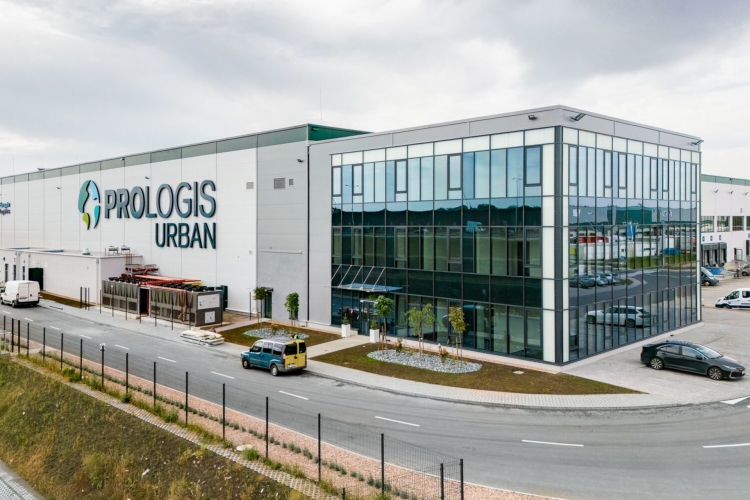Prologis Research: E-commerce is growing, and so is the warehouse industry
- Oprac. M.K.
- Kategoria: English zone
The growth of e-commerce is accelerating, driving the transformation of the European logistics market. The increasing popularity of online shopping is displacing the traditional retail model. Logistics centers designed for direct-to-consumer deliveries are becoming a key element of modern trade. According to the latest Prologis Research data, with e-commerce growing at a rate of over 5% annually, Europe will require an additional 1.4 to 1.9 million square meters of logistics space each year over the next five years.
Currently, online shopping accounts for about 10% of retail sales in Europe. Prologis Research data indicates that this share could increase to 13.4% by 2030. Several factors are driving the growth of e-commerce, including the rising popularity of mobile shopping, faster deliveries, and growing consumer trust in online stores. More retailers are investing in the integration of online and offline sales channels, further fueling the digital transformation of commerce. The growth of e-commerce will drive demand for modern logistics facilities that can meet changing consumer expectations and ensure greater efficiency in supply chains – particularly in regions with access to large groups of potential customers.
Poland in the European context – e-commerce is gaining momentum
The rising importance of online shopping in Europe is also reflected in Polish statistics. According to estimates from the National Chamber of Commerce, based on data from the Central Statistical Office (GUS), the beginning of 2025 marked the best performance for Polish e-commerce in five years. In January, online sales reached a value of PLN 6.94 billion, accounting for 9.1% of total retail sales, representing a 9.4% year-over-year increase. In February, the share was 9.0%, with a turnover increase of 5.2% compared to the same month in 2024.
Asian e-commerce giants are reshaping the market
As consumer expectations for fast order fulfillment grow and the direct-to-consumer (D2C) sales model gains popularity, the European logistics market is undergoing rapid transformation. Global brands from Asia, increasingly asserting their presence in Europe, are putting significant pressure on the development of modern warehouse infrastructure. In Spain, e-commerce powerhouses from the Far East now account for 34% of all online purchases, while in Germany, their share has tripled since 2022. This dynamic expansion is significantly increasing the demand for technologically advanced warehouses and distribution centers.
EU trade policy accelerates supply chain reorganization
The transformation of the logistics market is not only the result of consumer and technological changes but also the outcome of new legal regulations. Planned changes by the European Union, including the reform of de minimis tax exemptions (currently allowing duty-free imports of goods worth less than 150 euros), could significantly impact the operating costs of platforms relying on global supply chains. In response to these challenges, more companies – mirroring trends observed in the United States – are restructuring their logistics. Instead of relying on long transport routes, they are moving operations closer to customers – to regional fulfillment centers and local warehouse hubs. This model not only significantly reduces delivery times but also better controls costs, quickly responds to market needs, and enhances the flexibility and resilience of logistics chains.
The dynamic growth of online sales in Poland and Europe, the expansion of global players, and new legal regulations are elements of a broader transformation encompassing the e-commerce sector. In this changing landscape, Poland – thanks to its central location, modern infrastructure, and well-developed warehouse facilities – is playing an increasingly important role. Trends such as supply source diversification and the growing importance of local supply chains are expected to strengthen in the coming months. Already, more global companies are choosing to locate key logistics centers in Poland. At Prologis, we are prepared to support our partners in smoothly adapting to market changes – commented Paweł Sapek, Senior Vice President, Regional Head of Prologis in Central Europe.
Urban logistics becomes a priority
Customers expect faster deliveries. This drives the growing importance of warehouses located in cities and their immediate surroundings. Strategically located facilities allow for shorter delivery times, cost optimization, and increased resilience of the supply chain.
Fast delivery is one of the top priorities for the e-commerce industry. Therefore, proximity to the end customer is crucial. Hence the growing role of urban logistics. Prologis has warehouse spaces in Polish cities such as Warsaw, Łódź, Wrocław, and Poznań, enabling us to support companies that particularly benefit from being close to the end customer - emphasized Paweł Sapek.
Source: Prologis



